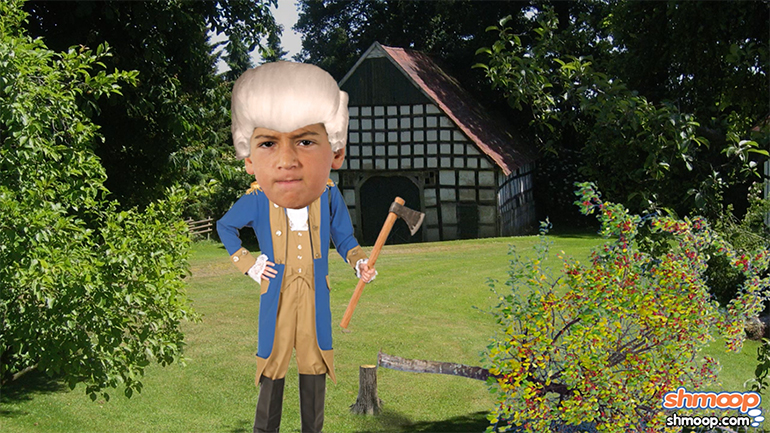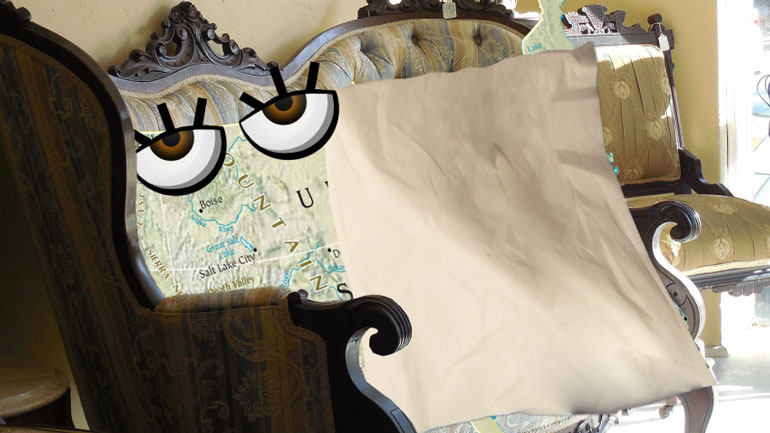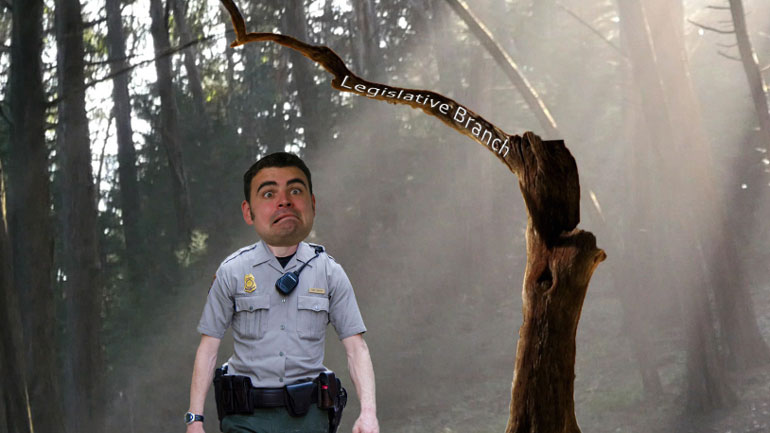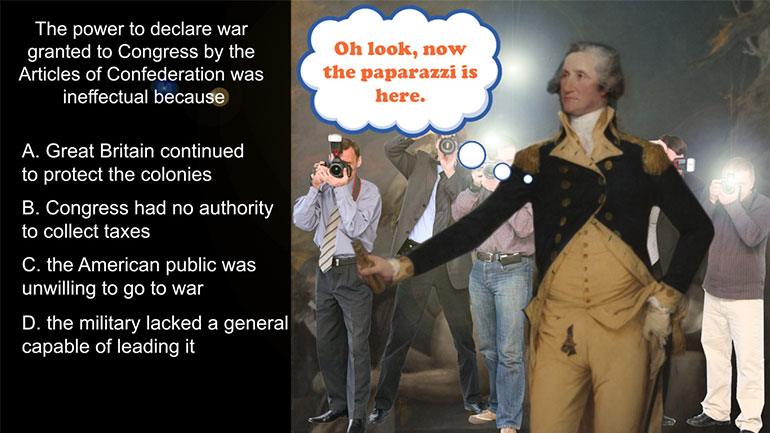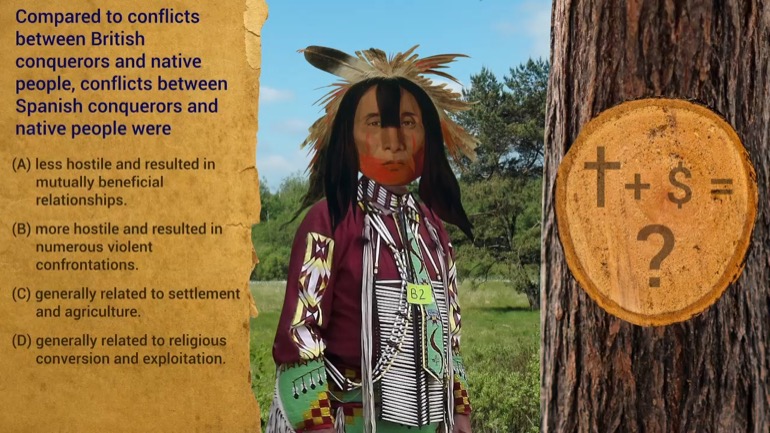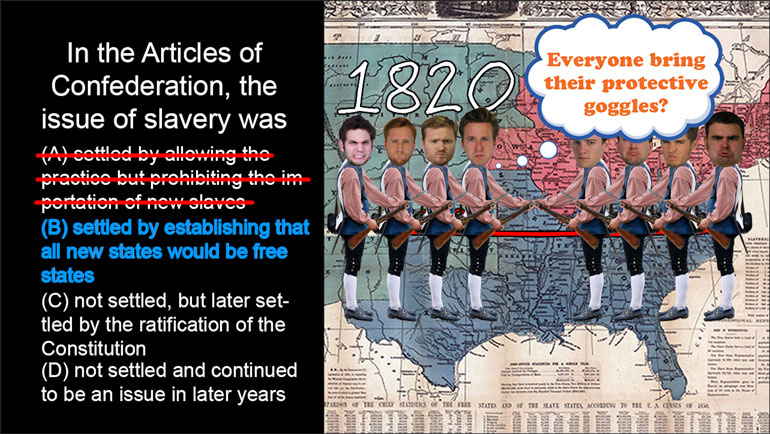ShmoopTube
Where Monty Python meets your 10th grade teacher.
Search Thousands of Shmoop Videos
A New Constitution Videos 8 videos
AP U.S. History 4.1 Period 3: 1754-1800. The argument in the excerpt is most clearly an example of which of the following late 18th-century trends?
AP U.S. History 4.3 Period 3: 1754-1800. Which of the following factors contributed most directly to the trend described in the excerpt?
AP U.S. History Exam 2.12. How did the provisions laid out in the excerpt lead to problems for the new government?
AP U.S. History Exam 2.12 177 Views
Share It!
Description:
AP U.S. History Exam 2.12. How did the provisions laid out in the excerpt lead to problems for the new government?
Transcript
- 00:00
[ musical flourish ]
- 00:03
And here's your Shmoop du jour, brought to you by a toothless executive,
- 00:07
a federal official in dire need of dental care.
- 00:10
Yeah.... Obamacare.
- 00:12
All right, first up, the excerpt:
Full Transcript
- 00:14
[ mumbles ]
- 00:17
[ mumbling continues ] Articles of Confederation.
- 00:22
All right, and now the question:
- 00:24
How did the provisions laid out in the excerpt lead to
- 00:27
problems for the new government?
- 00:29
And here are your potential answers.
- 00:31
[ mumbles ]
- 00:36
Okay.
- 00:37
Well, though the Articles of Confederation were written with the best of intentions,
- 00:41
many of its safeguards ended up doing more harm than good.
- 00:44
Let's see which answer best describes
- 00:46
how these Articles laid the U.S. government a bit...
- 00:49
bare.
- 00:49
All right. Did provisions in the Articles of Confederation lead to the
- 00:53
problems for the new government because A -
- 00:55
the document allowed criminals to move between states?
- 00:58
Well, the excerpt says that people can move freely between states,
- 01:01
"paupers, vagabonds, and fugitives from justice excepted."
- 01:05
So those criminals would have been stuck in a state of arrest.
- 01:09
Did the Articles cause problems because C - the document placed
- 01:12
tight restrictions on trade and commerce?
- 01:15
Well, actually, the Articles denied the federal government
- 01:17
the power to control trade and coin money, which left
- 01:19
them little to do but observe.
- 01:22
So that benches C and D. Cross them off.
- 01:24
Which means the Articles of Confederation led to
- 01:26
problems for the new government because B - the United States
- 01:30
government was unable to tax the states.
- 01:32
The Articles gave a great deal of control to the states,
- 01:34
including the power to tax, which seemed like a
- 01:37
perfect arrangement. That is, until the national government
- 01:40
ran out of money for general welfare and protection.
- 01:43
So the answer is B.
- 01:44
The framers amended this weak central government
- 01:46
when they wrote the Constitution, taking some power
- 01:49
from the people and giving it back to...
- 01:51
you know, the people in charge.
- 01:53
[ pen writing ]
Related Videos
Ever heard of a "living document"? They eat and breathe just like the rest of us! They even walk around on their own two legs. Okay, fine—maybe t...
If the Puritans had gotten their way, religion would play a much larger role in lawmaking these days. Want to know more? Watch the video for all th...
What happened between the creation of the Articles of Confederation and the ratification of the current U.S. Constitution? This video analyzes the...
The Modernists thought the world had a lot of problems, and they were intent on fixing them—or at least talking about fixing them. Unfortunately,...
This video explains Federalism and the quest for a fair balance between state and national power. It covers the progression and compromises of Fede...
